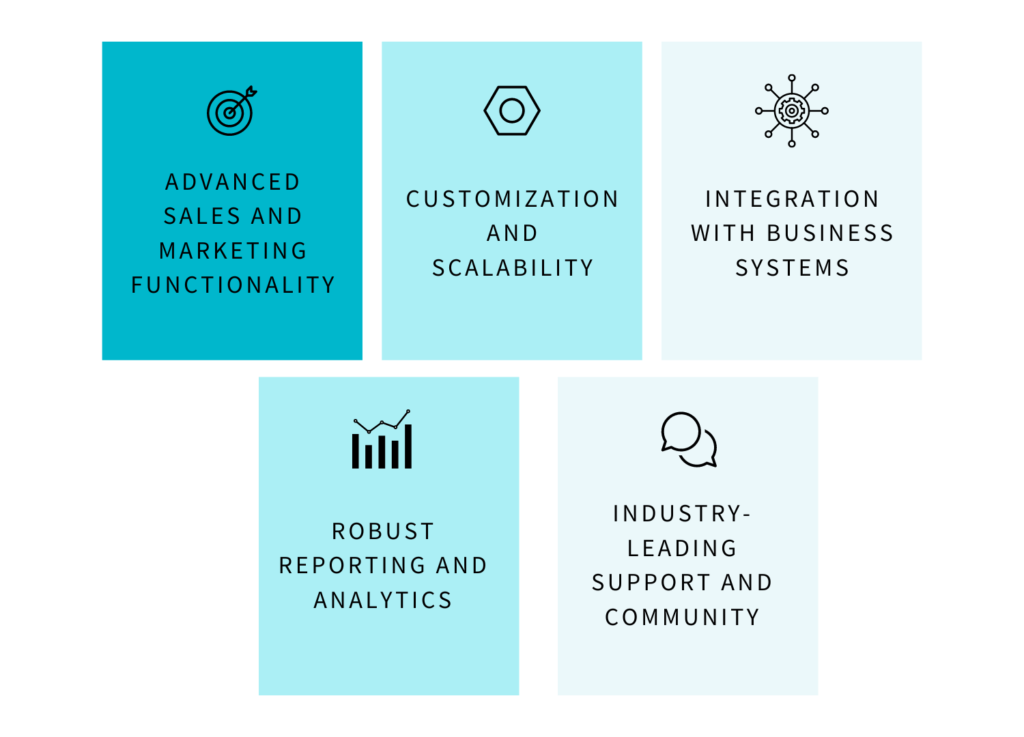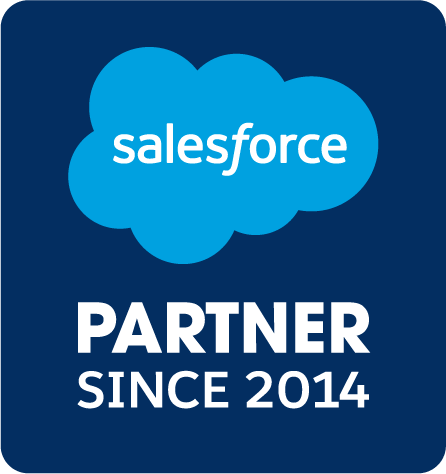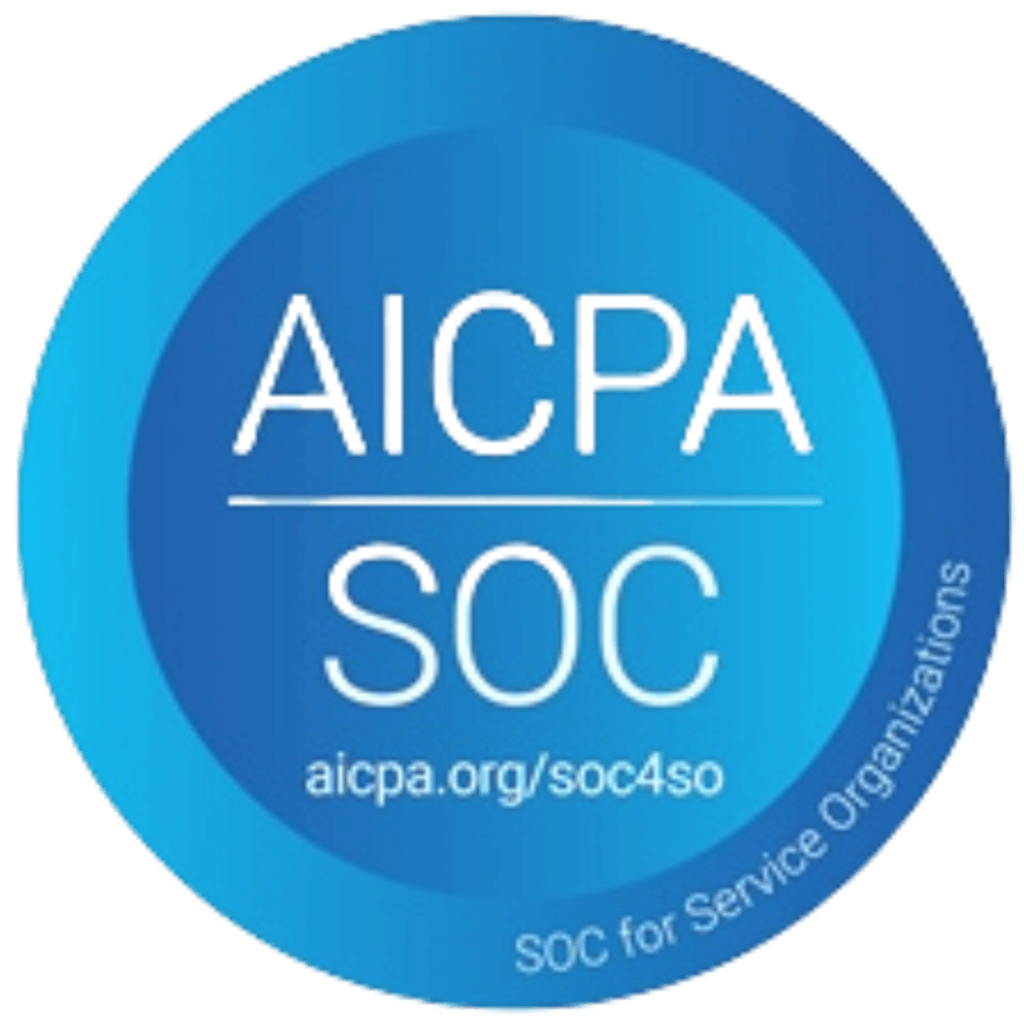Migrating to Salesforce can unlock the power of advanced CRM functionality, enabling your business to optimize sales and marketing processes, improve collaboration, and drive growth. This article will explore why migrating from HubSpot to Salesforce can be a game-changer for your businesses, enabling you to achieve higher efficiency, scalability, and success. So let us tell you when, why, how, and more!
Key indicators that it's time to upgrade and transition from HubSpot to Salesforce
1. When business growth outpaces HubSpot’s capacity, struggling to keep pace with the expanding demands of upgrading to Salesforce becomes crucial.
2. In situations requiring advanced sales and marketing features, Salesforce provides a tailored suite of tools for enhanced efficiency and improved outcomes.
3. The need to integrate with a diverse range of third-party applications, systems, or tools has become more important as your business has grown in complexity.

4. When needing advanced reporting, analytics, and visualization features to gain deeper insights into sales and marketing performance, Salesforce’s powerful reporting tools and customizable dashboards can provide the necessary analytics capabilities.
Check out this recent HubSpot to Salesforce migration and customer testimonial.
Why Migrate from HubSpot to Salesforce?
Advanced Sales and Marketing Functionality
Salesforce empowers teams to enhance processes and achieve better outcomes. Businesses gain access to a comprehensive suite of tools and features specifically designed to drive sales and marketing success.
Customization and Scalability
A highly flexible platform that can seamlessly suit any business’s specific and unique needs. From customizing workflows and automation rules to designing personalized user interfaces, Salesforce allows your company to create a CRM system that aligns perfectly with their requirements and grows alongside your organization.
Integration with Business Systems
By migrating, companies can achieve a unified and interconnected infrastructure, enabling efficient data flow, automated workflows, and comprehensive insights across different departments and functions. This integration capability enhances productivity, data accuracy, and decision-making within the organization, ultimately leading to improved operational efficiency and customer satisfaction.
Robust Reporting and Analytics
With Salesforce’s advanced reporting functionalities, businesses can create custom reports and dashboards, track key performance indicators (KPIs), and gain valuable insights into their sales, marketing, and customer service efforts. Additionally, Salesforce’s AI-powered analytics tools, such as Einstein Analytics, provide advanced predictive and prescriptive analytics, helping businesses uncover hidden patterns, identify potential risks or opportunities, and take proactive measures.
Industry-Leading Support and Community
Whether troubleshooting technical issues, addressing implementation challenges, or seeking guidance on best practices, Salesforce’s support team can assist organizations throughout their migration and beyond.
Technical considerations to ensure a smooth and successful migration process
Migrating from one CRM platform to another requires careful planning and care of various technical aspects:
Data Audit
Organizations should conduct a comprehensive data audit to assess the quality, completeness, and accuracy of their existing data in HubSpot. This step helps identify any data inconsistencies or gaps that must be addressed before the migration.
Data Mapping and Cleansing
Analyze the data structure and fields in HubSpot and Salesforce to accurately map corresponding data during migration. Also, during this process, the consultant must identify any inconsistencies or discrepancies in data formats, naming conventions, or data types and address them before the migration.
Migration Tools
Choosing the right technology for migrating to Salesforce is essential to ensure a successful and efficient transition. It is important to carefully evaluate migration requirements such as data volume, transformation complexity, and loading speed to select the most appropriate tool. The correct choice can streamline the migration process, minimize errors, and optimize the performance of the final system in Salesforce.
Some technologies you can consider in this phase are:
Data Loader: Versatile tool that allows loading large volumes of data into Salesforce from various sources, such as external databases. It is efficient for massive migrations and offers advanced programming and automation options.
Data Import Wizard: A simpler and user-friendly tool is ideal for smaller migrations or less technical users. It enables quick and easy data loading from CSV or Excel files, although it has limitations regarding data volumes and customization options.
Bulk API: Powerful option for large-scale migrations. It enables loading massive amounts of data into Salesforce through batch operations, delivering optimal performance and increased efficiency in time and resources. Bulk API is beneficial when processing substantial volumes of data within a limited timeframe, as it leverages Salesforce’s parallel processing capability.
Data Security and Privacy
As a leading CRM platform, Salesforce adheres to industry best practices and compliance standards to ensure data protection. It is essential to define access controls and user permissions in Salesforce. Provides granular control over user permissions, allowing administrators to define roles, profiles, and data access settings to enforce data privacy.
Customizations and Workflows
Understanding the current configurations will help determine how they can be replicated or optimized in Salesforce. This evaluation includes identifying dependencies on specific features or functionalities in HubSpot and finding equivalent or alternative solutions within Salesforce’s ecosystem. During migration planning, it is essential to involve key stakeholders and subject matter experts from both HubSpot and Salesforce teams. This collaboration ensures a comprehensive understanding of the customizations in Salesforce.
Integration with Third-Party Systems
By evaluating the available integration options in Salesforce, such as pre-built connectors or APIs, businesses can identify the most suitable approach to seamlessly connect Salesforce with other business-critical systems. By taking a proactive approach and planning the migration of custom integrations, companies can minimize disruptions and maintain the integrity of data and functionality.
User Training and Adoption
Knowledge transfer is key to your project. Developing a comprehensive training plan that familiarizes users with the Salesforce interface, features, and functionalities is essential. This plan should include various training sessions, documentation, and resources to help users adapt and maximize the new system’s potential. Salesforce partners like Oktana can significantly facilitate knowledge transfer during migration. They can provide expert guidance and training tailored to the business’s needs, ensuring users have the necessary skills to navigate Salesforce effectively.
Testing and Validation
It is crucial to set up a dedicated testing environment within Salesforce. This environment allows businesses to validate the migrated data, customizations, workflows, and integrations before the final migration. Establishing a structured testing plan covering various migration aspects is essential. This plan should outline specific test scenarios, expected results, and steps to reproduce issues.
Success Case Studies Migrations done by Oktana
High Tech company HubSpot to Salesforce Data & Process Migration
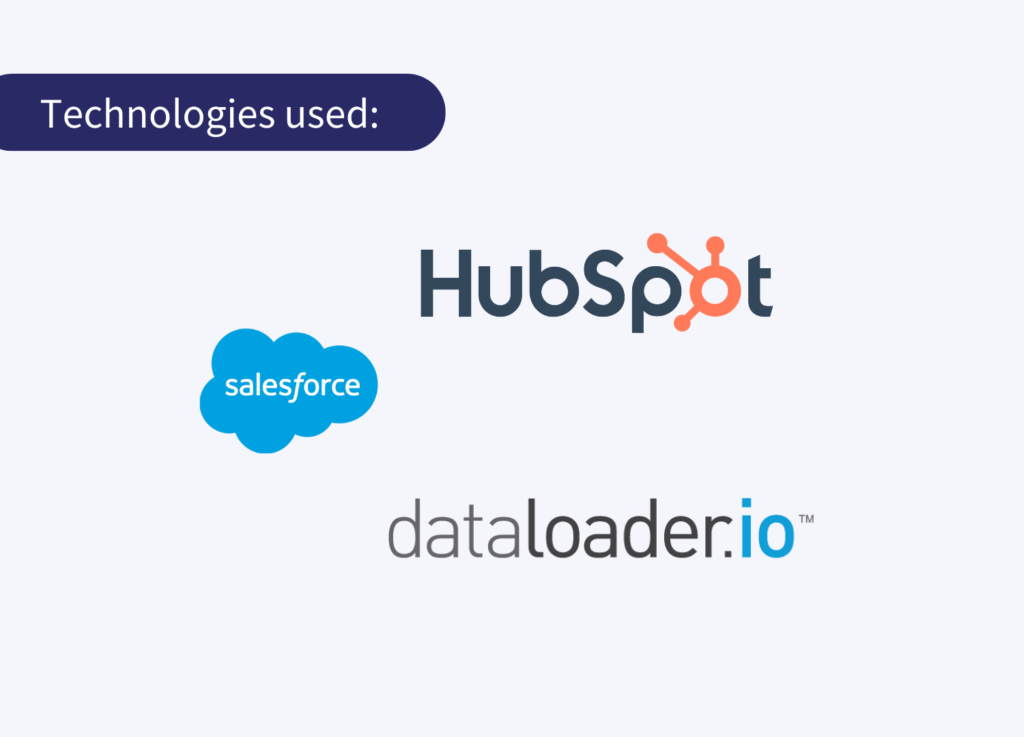
Our customer is a data analytics company that transforms complex data into valuable insights for business decision-makers. As the company expanded and added more processes, the complexity of the CRM grew exponentially, and leaders decided to migrate to Salesforce to increase usability and update all data. The new CRM would also require more functionality and customizations to include a sales management process.
Virtual Events Platform company CRM Migration to Salesforce
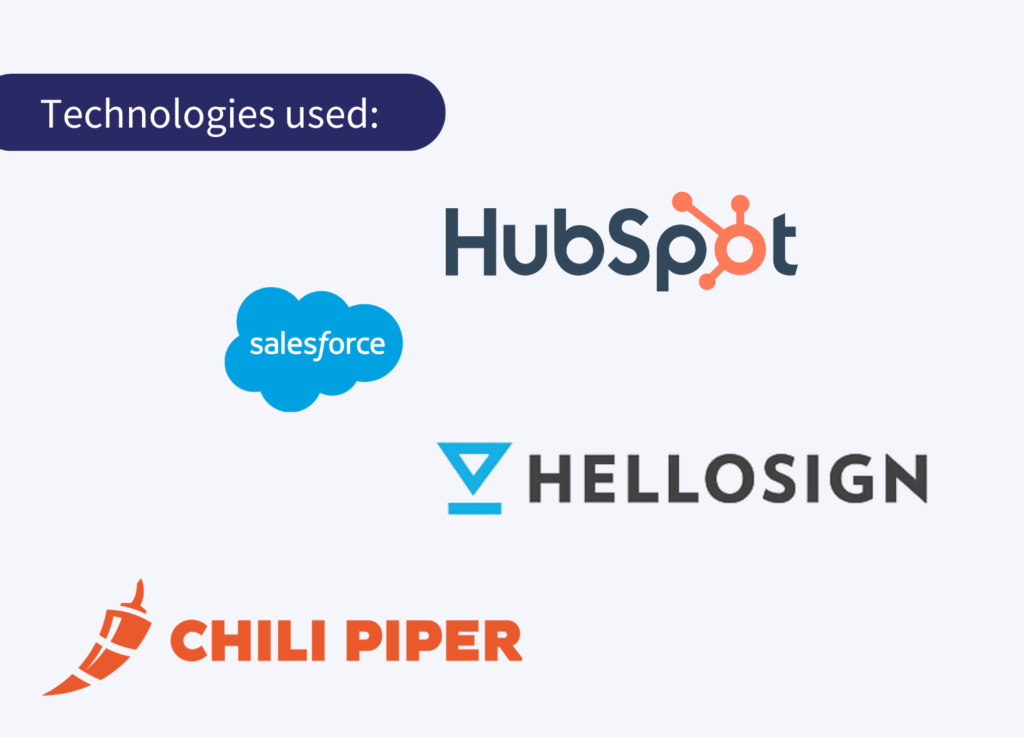
We partner with a global virtual event venue company that provides multiple interactive areas optimized for connecting and engaging. This start-up company boosted sales during the COVID-19 pandemic. They decided to change their CRM from HubSpot to Salesforce. This required migrating all their data to Salesforce and recreating all processes and workflows they were already using.
In a nutshell
The decision to migrate from HubSpot to Salesforce requires careful consideration and planning. While the process may pose challenges, it can be successfully executed while maintaining sales and marketing team productivity and ensuring a high data transfer success rate. Key factors include thorough team training on the new system, creating a detailed migration plan, and testing the setup before proceeding with the final migration. By carefully considering these factors and selecting the most suitable approach, your business can successfully migrate from HubSpot to Salesforce, unlocking the potential for improved sales and marketing operations within the organization.
At Oktana, we specialize in CRM system migrations and offer our expertise to guide you through decision-making and address any detailed questions. Schedule a meeting with one of our experts.

